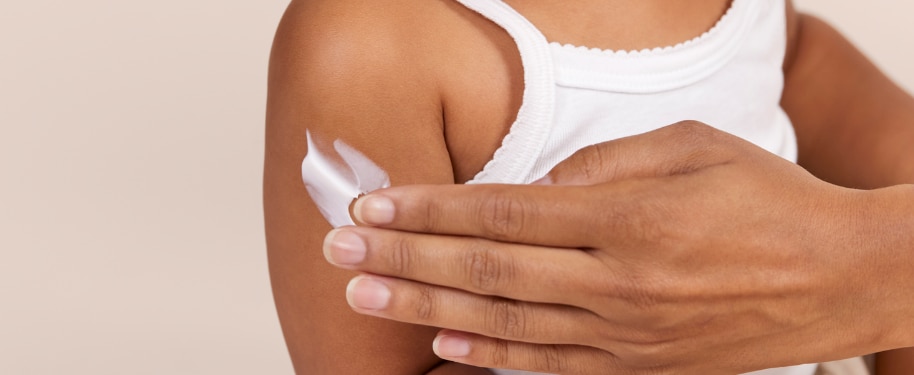Expert tips to manage eczema
Eczema, also known as atopic dermatitis, affects many South Africans every day. Dermatologist, Dr Eleanor MacGregor answers these questions to help manage the skin condition.
What are the most common symptoms associated with eczema?
Atopic dermatitis is characterized by dry skin and severe itching. With acute eczema flare-ups, the skin becomes red, the itching intensity increases, small blisters become visible, often oozing and causing a crust-like appearance. Continuous scratching can cause thickening of the skin, resulting in skin plaques.
Does atopic dermatitis vary across different ages?
In infants and young children (0-2 years), atopic dermatitis typically presents with itchy, red, scaly and crusted plaques on the cheeks or scalp. The diaper area is usually not affected. In older children (2-16 years), atopic dermatitis is characterized by thickened skin plaques mainly in folds of the arms and knees, wrists, ankles and neck. In adults, atopic dermatitis is generally also characterized by the thickening of the skin. Mostly found in skin folds, but the face, neck and hands may also be affected.
What are the main causes of atopic dermatitis?
Atopic dermatitis is often associated with a personal or family history of atopy. Atopy includes disorders like atopic dermatitis, asthma and allergic rhinitis (sinus). Sensitization to environmental or food allergens is sometimes also a causative factor, normally in more severe atopic dermatitis cases. The epidermal skin barrier (the physical barrier between the skin and the environment) is often genetically impaired in atopic dermatitis patients. Impaired barrier function results in increased transepidermal water loss, causing severe dryness. Environmental irritants and allergens can also enter the skin more easily when the barrier is not functioning properly.
How should atopic skin be cleansed?
Long, hot baths or showers are not recommended as this dries the skin even further. A 5 to 10-minute lukewarm bath or shower is advised. Avoid the use of harsh soaps. Rather look for gentle cleansing bars or oil-based cleansers that are dermatologically tested. Cloths, sponges and loofahs should be avoided, rather use your hands to wash. After the bath or shower, it is best to air-dry or pat-dry lightly with a towel.
How should atopic skin be moisturiZed?
Moisturizing is extremely important in the management of atopic dermatitis to help reduce the frequency of flare ups and to minimize the need for topical cortisones. Apply a good quality, gentle moisturizer that helps restore the skin barrier, at least twice daily. Moisturizers with added benefits that fortify the skin, soothe and reduce itching are becoming more readily available. It is advisable to use moisturizers that have pump dispensers, instead of pots, to limit the risk of bacterial contamination, which can aggravate atopic skin.
What lifestyle changes are recommended to help manage atopic skin?
- Avoid dressing too warmly as sweating may worsen the itching.
- Wear loose, cotton clothing and avoid scratchy, synthetic material where possible.
- Use mild washing powders without fragrance and avoid fabric softeners.
- Try to limit exposure to chlorine and saltwater pools to maximum 15 minutes. Rinse and moisturize the skin straight after.
- Be wary of wet wipes, especially with children, as many may contain irritating ingredients.
- Keep your child’s nails short to avoid scratching injury. Playful mittens could be a nice way to avoid scratching.
Information courtesy of Dermatologist, Dr Eleanor MacGregor, Durbanville. Tel: 021 975 2987
Looking for dermatologically approved skincare products to help soothe eczema-prone skin?
The Eau Thermale Avène XeraCalm A.D range of cleansers and moisturizers offers gentle, effective relief for dry, itchy skin with clinically proven efficacy. All products in the range contain I-Modulia (a biotechnological innovation to reduce itching), barrier-restoring ingredients and Avène Thermal Spring Water (known for its soothing, anti-irritating and softening properties).
